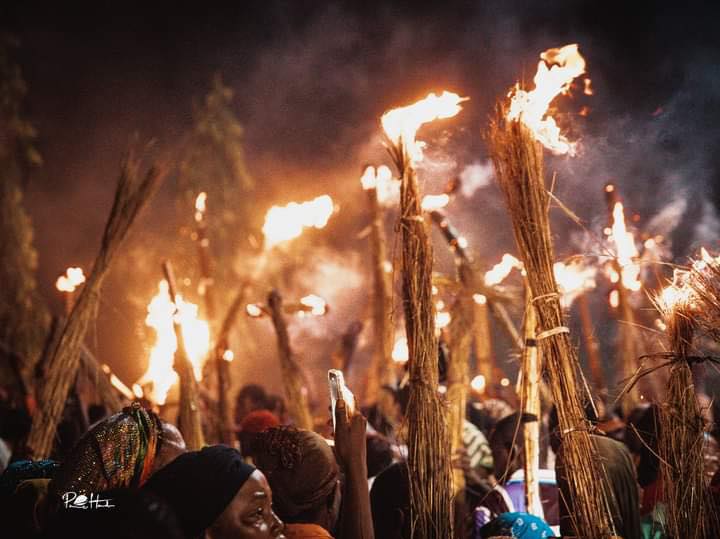The vibrant tapestry of culture and tradition that typically characterizes the annual Fire Festival, known as Bugum Chugu, in Bimbilla, Ghana, was tragically stained by the untimely death of a young student on Saturday, July 5th. Fatima, a student at Bimbilla Senior High School, became an innocent victim of celebratory gunfire, a stray bullet piercing her neck and ending her life amidst the festivities. The incident, a jarring contradiction to the intended spirit of unity and cultural expression, has ignited widespread outrage and reignited the debate surrounding the unregulated use of firearms during traditional events, particularly in northern Ghana.
The scene at the festival, as recounted by eyewitnesses, was one of chaotic revelry, where the discharge of firearms and the explosion of fireworks intermingled with the traditional celebrations, creating a dangerous atmosphere. Despite prior warnings issued by the Municipal Security Council urging attendees to refrain from using guns and other potentially harmful objects, these cautions were tragically disregarded. The disregard for safety transformed a celebration of heritage into a scene of tragedy, leaving Fatima’s family and community to grapple with the senseless loss of a young life full of promise.
Adding to the tragedy, Fatima’s death underscores the recurring problem of firearm misuse during cultural celebrations in Ghana. The incident occurred just days after a public advisory issued by the Ghana National Commission on Small Arms and Light Weapons, which emphasized the dangers of firearms and the importance of peaceful observance of the festival. The Commission’s statement explicitly reminded citizens that firearms are not toys and that their unauthorized possession and use constitute illegal acts punishable by law. The advisory served as a stark reminder of the potential consequences of irresponsible behavior, a warning tragically realized in Fatima’s case.
The Commission’s statement, signed by Acting Executive Secretary Dr. Adam Bonaa, strongly condemned the reckless use of firearms, highlighting the risks of accidental shootings, injuries, and fatalities that accompany such practices. It underscored the importance of upholding the cultural significance of the Bugum Festival with respect and discipline, urging individuals to report any unlawful possession or use of firearms to the appropriate authorities. The statement aimed to promote responsible celebration while preserving the integrity of the cultural traditions that underpin the festival.
In the aftermath of the tragedy, the Bimbilla police have initiated an investigation into the shooting incident, responding to the demands for accountability from community members and rights groups. The calls for stricter enforcement of public safety regulations during cultural events have intensified, with Fatima’s death serving as a stark reminder of the urgent need for change. The incident has exposed the gap between existing regulations and their practical enforcement, highlighting the need for proactive measures to prevent future tragedies.
Fatima’s death transcends a singular incident; it symbolizes a broader societal issue concerning the control and regulation of firearms, particularly within the context of cultural celebrations. The incident compels a critical examination of the effectiveness of existing laws, the adequacy of enforcement mechanisms, and the collective responsibility of communities to ensure safety during events intended to celebrate shared heritage. Her tragic loss underscores the urgent need for a unified approach, encompassing legislative action, community engagement, and educational initiatives, to prevent future tragedies and ensure that cultural celebrations remain occasions of joy and unity, not sorrow and loss.














